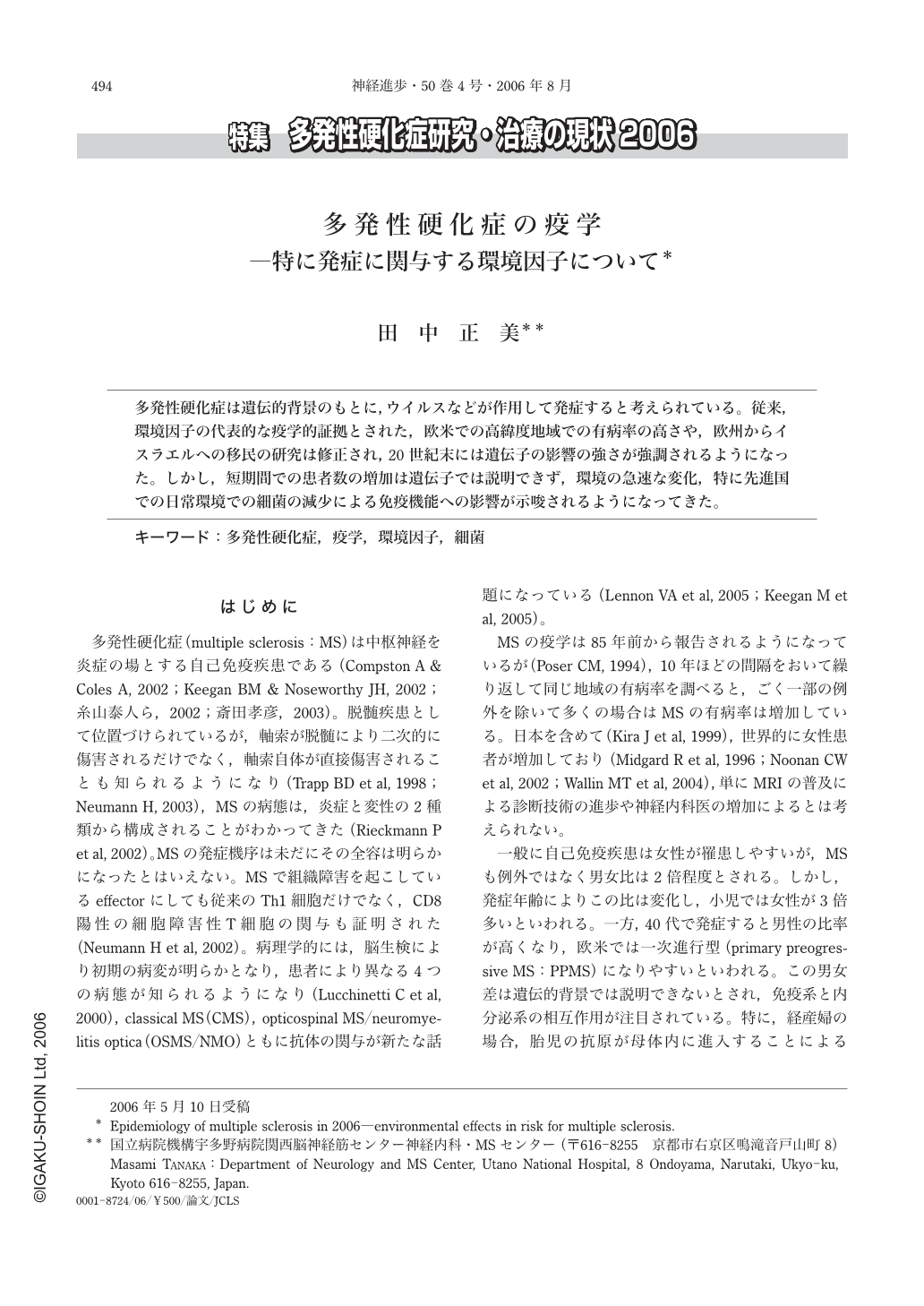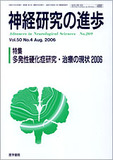Japanese
English
- 有料閲覧
- Abstract 文献概要
- 1ページ目 Look Inside
- 参考文献 Reference
多発性硬化症は遺伝的背景のもとに,ウイルスなどが作用して発症すると考えられている。従来,環境因子の代表的な疫学的証拠とされた,欧米での高緯度地域での有病率の高さや,欧州からイスラエルへの移民の研究は修正され,20世紀末には遺伝子の影響の強さが強調されるようになった。しかし,短期間での患者数の増加は遺伝子では説明できず,環境の急速な変化,特に先進国での日常環境での細菌の減少による免疫機能への影響が示唆されるようになってきた。
The pathogenesis of multiple sclerosis(MS)remains unclear, however, genetic factors are believed to be important in disease susceptibility. MS is thought to be primarily a disease of Caucasians whereas certain ethnic groups are resistant. A north to south prevalence gradient found in Europe, the United States(USA), Australia, New Zealand, and Japan may be due to ethnic variation of northern European heritage. Recent studies suggest the effect of northern latitude is much less strong than previously in Europe and USA. The prevalence of MS in most areas of the world increases during recent two decades. The increased number of MS patients may not be due to the development of diagnostic procedures including MRI because the prevalence ratio between men and women decreased. These findings suggest the number of MS patients is increasing and the changes of environmental factors in the population such as virus or bacteria influenced on the prevalence of MS. The immunoregulatory cells including mucosal-associated invariant T(MAIT)cells insufficiently develop by a change of bacterial flora in the intestine, that may be one of the reasons of increased patients with MS.

Copyright © 2006, Igaku-Shoin Ltd. All rights reserved.


